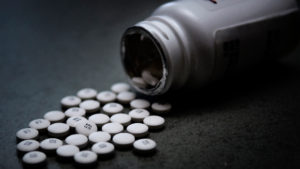Drug Detoxification & Pain Killer Addiction
No one starts out to be a drug addict. For many it happens slowly through the use of pain medication and they never saw it coming. Most didn’t even know they had an addiction problem. Until they ran out of medication and were left with the tough choice of continuing the drugs to manage pain or stop and suffer from withdraw symptoms.
Others started chasing that high and escalated the type and volume of drugs until the drug addiction ruled their lives. It wasn’t the plan, and we understand that.
Regardless of the path that brought you to us, we will help you. Our treatments include the medically managed use of buprenorphine (Subutex Suboxone, Zubsolv, Sublocade, Probuphine) naltrexone (Vivitrol), lofexidine (Lucemyra) to reduce cravings and suppress withdrawal symptoms
In addition to some of the more traditional drug addictions we are on the cutting edge of managing today’s addictions to Vivitrol, Sublicade, Fentanyl, Kratom and Brizatti, through the use of MAT therapy.
Freedom from drug addiction means you get your life back and a whole lot more. At Addiction Navigators, you don’t have to go through rehabilitation alone. We are with you every step of the way and in a one on one environment
What is MAT Therapy?
Medication-assisted treatment (MAT) is the use of medications in combination with counseling and behavioral therapies for the treatment of substance use disorders. Simply put, its the best method for getting you, your life back in a safe and caring way.
The Recovery Solution
We begin by identifying the issues surrounding the pain and continued substance use. We are able to do this by establishing a relationship of respect, compassion, empathy, honesty and trust.
Your doctor will refer to the PMP (Pharmacy Monitoring Program), toxicology results, medical records, the patient’s history and physical / psychosocial assessment as part of our discovery process. Then , we establish an individualized medical treatment plan considering medication assisted treatment options, psychosocial and spiritual support, nutrition, exercise and sleep. Often this can be done through outpatient office visits or telemed appointments. Occasionally an in-patient setting is recommended. Your part of the recovery help is to establish a quality team of supporters involving medical physician, counselor/therapist, pharmacy staff, family and peer support.
There is hope, light and success for a new life and a brighter future. And it simply starts with a phone call. Don’t wait another minute, life is too short as it is.

